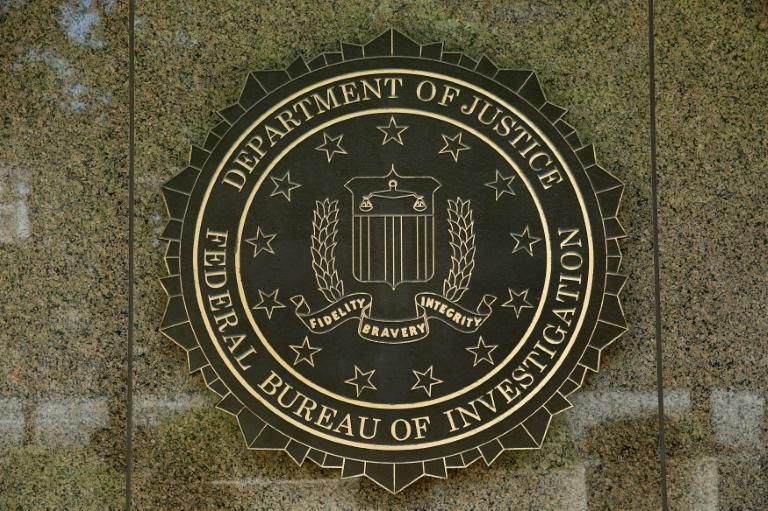Stolen cars, romance scams, 6 other things that could get you in trouble with the FBI
)
The Federal Bureau of Investigation (FBI) is the United States’ leading law enforcement and intelligence agency, responsible for investigating crimes that threaten national security, public safety, or federal law.
While many people associate the FBI with terrorism, espionage, or organised crime, a wide range of activities, some seemingly harmless, can place individuals under the Bureau’s watch.
This article seeks to educate readers about the kinds of actions, intentional or not, that could attract FBI scrutiny.
1. Terrorism: The FBI’s top priority
Protecting the United States from terrorist attacks remains the Bureau’s foremost responsibility. But this goes beyond actual acts of violence.
Activities that could trigger a terrorism investigation include:
Material Support: Providing money or resources to designated terrorist organisations, even unknowingly. For example, donating to a group that appears to be a charity but is secretly linked to terrorism.
Online Activity: Downloading extremist propaganda, engaging in radical forums, or sharing violent content. The 2013 Boston Marathon bombers were partly radicalised through online materials.
Suspicious Purchases: Buying bomb-making materials such as chemicals or large quantities of fertiliser. The 1995 Oklahoma City bomber, Timothy McVeigh, purchased ammonium nitrate fertiliser.
Travel Patterns: Visiting or attempting to travel to countries known to harbour terrorist organisations without clear, legitimate purposes.
2. Counterintelligence and Espionage
Modern espionage is no longer confined to cloak-and-dagger operations. Much of it now occurs online through data theft.
Corporate Espionage: Stealing trade secrets for foreign competitors. In 2014, five Chinese military officers were indicted for hacking U.S. companies including Westinghouse and U.S. Steel.
Academic Espionage: Researchers secretly transferring sensitive research or failing to disclose foreign funding. The “China Initiative” saw high-profile cases such as Harvard professor Charles Lieber.
Technology Transfer: Illegally exporting sensitive technologies or military-grade equipment without licences.
3. Cybercrime: The digital battlefield
The FBI leads the fight against cyberattacks and online fraud. Crimes that draw attention include:
Ransomware: Deploying malware that locks victims’ files for ransom. The 2021 Colonial Pipeline attack disrupted fuel supplies across the U.S.
Business Email Compromise: Fraud schemes targeting companies through hacked communications.
Identity Theft Networks: Stealing personal data on a large scale, such as the Equifax breach which exposed details of 147 million Americans.
Cryptocurrency Fraud: Fake crypto investments, Ponzi schemes, or hacking exchanges.

4. Public corruption: A serious threat
The FBI considers corruption a fundamental risk to national security and governance.
Bribery: Offering or accepting bribes involving government officials. Former Illinois Governor Rod Blagojevich was jailed for trying to sell Barack Obama’s Senate seat.
Election Fraud: Manipulating voter registration, ballots, or results.
Contract Fraud: Overbilling or rigging government contracts.
Police Corruption: Officers abusing their authority by protecting criminals or violating civil rights.
)
5. Civil rights violations
The FBI investigates federal civil rights violations, including:
Hate Crimes: Violence motivated by race, religion, gender, or sexual orientation. The 2018 Pittsburgh synagogue shooting was charged as a federal hate crime.
Human Trafficking: Forcing individuals into labour or sex work.
Colour of Law Violations: Government officials abusing authority, such as in the Derek Chauvin case.
6. Transnational organised crime
International criminal groups engage in activities such as:
READ MORE: Shatta Wale detained by EOCO less than 24 hours after flaunting new-acquired $260K Lamborghini
Drug Trafficking: Large-scale narcotics operations. The El Chapo case highlighted the FBI’s global collaboration.
Human Smuggling: Facilitating unlawful migration under dangerous conditions.
Counterfeit Goods: Producing fake pharmaceuticals, luxury items, or currency.
Money Laundering: Concealing criminal proceeds through complex financial systems.

7. White-collar crime
Although non-violent, these crimes devastate economies and lives.
Securities Fraud: Insider trading or Ponzi schemes. Bernie Madoff defrauded investors of billions.
Healthcare Fraud: Overbilling or charging for unnecessary procedures.
Mortgage Fraud: Submitting false information on loan applications.
Tax Evasion: Concealing income or filing false tax returns.
)
8. Violent crime with federal links
While most violent crimes fall under state jurisdiction, the FBI steps in when federal law applies.
Bank Robbery: Banks are federally insured, making robberies a federal crime.
Crimes on Federal Property: Violence on military bases, national parks, or government buildings.
Interstate Crimes: Kidnapping or murder cases crossing state borders.
Gang Violence: Multistate criminal networks fall under federal racketeering laws.
The Digital Paper Trail
Many investigations begin online. The FBI may track:
Bank and payment transactions
Phone, email, and messaging communications
)
Travel records and border crossings
Social media activities
Purchases of suspicious items
Critical legal traps
Even if innocent of the underlying offence, some actions alone can land you in trouble:
Lying to Federal Agents: Providing false statements is itself a felony. This ensnared Martha Stewart and Michael Flynn.
Obstruction of Justice: Destroying evidence, intimidating witnesses, or interfering with investigations is a serious crime.
Staying Clear of Federal Scrutiny

For most people, avoiding FBI attention means:
Conducting business honestly
Following tax laws and reporting income properly
Avoiding suspicious international dealings
Respecting civil rights and laws
Staying cautious with online behaviour
Steering clear of criminal organisations
The FBI’s reach extends far beyond terrorism and organised crime. In today’s digital age, even careless jokes online, undisclosed financial ties, or sharing violent material could draw federal scrutiny.
The safest approach is simple: respect the law, act responsibly both online and offline, and avoid actions that may be misinterpreted as threats to national security or public safety.
)
)
,fit(112:112))
)
,fit(112:112))
)
)
)